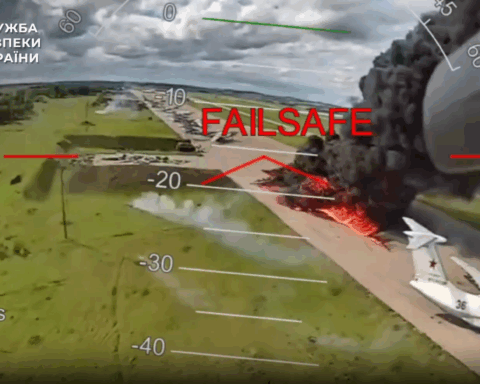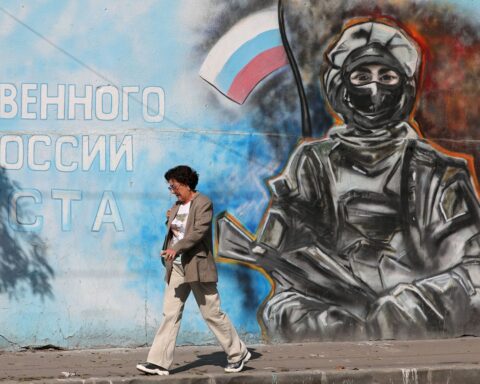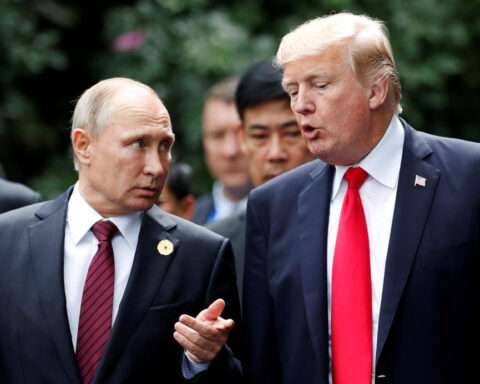NATO and the European Union said on September 28 that the leaks in two major pipeline s in the Baltic Sea were caused by “sabotage,” and vowed the “strongest possible response,” pledging to step up the protection of critical European infrastructure without accusing anyone of being behind the incident.
The Nord Stream 1 and 2 pipelines burst in several locations in the exclusive economic zones of Denmark and Sweden while neither of them was in operation amid an energy standoff between Russia and Europe.
NATO Secretary-General Jens Stoltenberg said he discussed the “sabotage” of the pipelines at a meeting with Danish Defense Minister Morten Bodskov in Brussels.
“We addressed the protection of critical infrastructure in NATO countries,” the chief of the Western military alliance that also includes most EU countries said on Twitter.
The EU issued a strong warning on September 28 to anybody attempting to attack the energy backbones of the 27-nation bloc.
“Any deliberate disruption of European energy infrastructure is utterly unacceptable and will be met with a robust and united response,” EU foreign policy chief Josep Borrell said in a statement, echoing a warning by European Commission chief Ursula von der Leyen.
Borrell announced that the bloc would step up the protection of its energy infrastructure following the incidents.
“We will support any investigation aimed at getting full clarity on what happened and why, and will take further steps to increase our resilience in energy security,” he noted.
Borrell’s statements came after seismologists from Sweden and Denmark said they had recorded powerful explosions in areas near where evidence of leaks from the Nord Stream gas pipelines in the Baltic Sea had been found, prompting Swedish police to launch an investigation into possible sabotage.
“These incidents are not a coincidence and affect us all,” Borrell said.
Neither NATO nor the EU accused anyone in particular of being behind the leaks, which occurred amid fears of a growing energy crisis as Western nations turn away from Russia as a supplier in response to Moscow’s unprovoked invasion of Ukraine.
Ukrainian presidential adviser Mikhaylo Podolyak tweeted on September 27 that the reported gas leaks were likely the result of a “terrorist attack” carried out by Moscow.
Podolyak accused Russia of seeking to “destabilize the economic situation in Europe and cause pre-winter panic.”
The Kremlin on September 28 vehemently rejected the accusations, calling them “absurd and stupid,” adding that the United States had opposed the pipelines and its companies had made big profits supplying gas to Europe.
Kremlin spokesman Dmitry Peskov told a daily conference call with reporters that the incident needed to be investigated and that the schedule for repairing the damaged pipelines was not clear.
“It’s quite predictable and also predictably stupid to give voice to these kinds of narratives — predictably stupid and absurd,” Peskov said.
“This is a big problem for us because, firstly, both lines of Nord Stream 2 are filled with gas — the entire system is ready to pump gas and the gas is very expensive… Now the gas is flying off into the air.”
“Are we interested in that? No, we are not, we have lost a route for gas supplies to Europe,” Peskov said.
Moscow reduced the gas flow to Europe through Nord Stream 1 before suspending it completely in August claiming that Western sanctions had caused technical difficulties.
The new Nord Stream 2 pipeline has been recently completed but Germany scrapped plans to import gas through it just days before Russia invaded Ukraine in February.
However, both pipelines still contained gas under pressure.
The turmoil came on the same day of the inauguration of a long-awaited pipeline that will bring Norwegian gas to Poland, which used to rely heavily on Russia for supplies.
The new system will bring Norway’s gas across Denmark and the Baltic Sea to Poland.
Anders Puck Nielsen, a researcher with the Center for Maritime Operations at the Royal Danish Defense College, was quoted by Reuters as saying the timing of the leaks was “conspicuous” given the ceremony for the Baltic Pipe.
He said it appeared someone may have sought “to send a signal that something could happen to the Norwegian gas.”
“The arrow points in the direction of Russia,” Puck Nielsen said.
“No one in the West is interested in having any kind of instability in the energy market.”
With reporting by SVT, Reuters, AFP, and TASS






